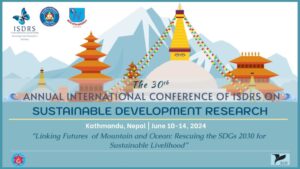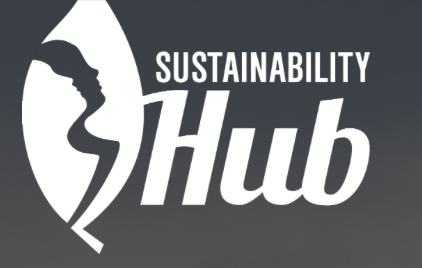Overview
Goals/objectives and areas of the track
Human activities have changed our planet1,2. The industrial systems, land uses, and technologies that have brought such immense prosperity for a proportion of the global population have also depleted and damaged the natural resources and larger environmental processes that allow the planet’s rich diversity of life to flourish3. The social, economic, and technical paradigms that have driven the character and growth of modern civilization are also eroding the capital base that allows it to exist4,5. We are exceeding biophysical limits - the planetary boundaries in which our environmental state remains stable - and failing to provide the social foundations of sustainability - equity, justice, and the many other aspects of the Sustainable Development Goals. The interlinked climate and biodiversity crises demand substantive transformations in the global growth-oriented economic system, yet mainstream approaches to ‘net zero transition’ are failing to achieve the scale and speed required. Alternative economic approaches and paradigms have emerged at different scales that speak to emerging de-growth debates and seek to oppose or subvert the growth-driven capitalist paradigm6,7.
Governments and the private sector are grappling with the challenges involved in transforming industrial systems, energy generation, agriculture, transport, manufacturing, and other economic sectors to low-carbon, sustainable models of operation. These transformations require complex and fundamental changes not only in technology, but to social and governance processes, financial systems, and the cultures and business models of commercial organisations.
This track is focused on the invention, design, and deployment of innovative economic, financial and/or institutional approaches to sustainability transformations. In particular, we welcome submissions that consider, build, and test the theoretical foundations of sustainability transitions at the organisational level, and explore the processes and implications of bringing theory to practice.
Theoretical:
- Innovative conceptual frameworks to inform sustainable economic and business models through the lens of transition theories.
- Commons, cooperatives, and new forms of commercial organizations.
- Conceptual contributions that challenge the growth paradigm within the global capitalist system (including ideas of green, smart, post-, de- and qualitative growth) by offering effective alternatives.
- Environmental justice-driven development including pro-poor growth.
Empirical:
- Case studies of business initiatives in decarbonization, business model transformation, and nature-based solutions.
- Analysis of and reflections on policy approaches such as the European Union’s taxonomy on sustainable activities or the Australian Emission Reductions Fund.
- Studies of how different business models can help achieve corporate climate, energy, and biodiversity sustainability goals.
- Measurement, reporting, and verification of corporate actions in regulatory contexts.
Length and content of the proposed abstract to the track
This track facilitates an interdisciplinary discussion of the conceptual foundations and implementation outcomes of the governance tools and frameworks that are being applied to achieve sustainability transition, particularly in the realm of business and economics. This includes (but is not limited to) human-and-nature realms of sustainable development; the justice and equity implications of transition processes and policies; the application of taxonomies and disclosure protocols; and the relationships between organizations and environmental conditions, institutions, and governance, and economic development and innovation. Robust studies incorporating quantitative methods are encouraged, as are inter- and transdisciplinary research methods and authorship, critical theoretical discussions, and innovative presentations. We welcome contributions for non-academic institutions and author teams including practitioner perspectives.
Each submitted abstract should address topics related to these themes. Abstracts should be 300 to 500 words in length, and include:
- Title, author/s, and affiliation/s.
- Background, study methods, key findings or results, and implications.
- A comment identifying the SDGs relevant to the paper.
- A comment indicating how the proposed presentation relates to the conference theme.
- A comment describing the presentation approach (online or in person), and explaining the presenter’s approach and use of media.
Potential publication channels
With regard to potential publications, depending on the number and quality of contributions the following publication opportunities have already been envisaged:
- A Special Issue proposal to PLOS Sustainability and Transformations (https://journals.plos.org/sustainabilitytransformation/), Sustainable Development (https://onlinelibrary.wiley.com/journal/10991719, IF 4.082), Sustainability (https://www.mdpi.com/journal/sustainability, IF 2.576), or other appropriate journal.
- A collaborative paper submission for Nature Sustainability (https://www.nature.com/natsustain/).
- A collaborative submission for research funding from a suitable initiative, such as the larger funding initiativesg. Horizon Europe, the Australia-Singapore Go-Green Co-Innovation Program, or the US National Science Foundation’s Accelerating Research Translation, UK Research and Innovation funding, The British Academy or Environment Conservation Fund, Public Policy Research Fund, as well as smaller and more topic and area specific ones e.g. Chartered Institute of Managment Accounting (CIMA), British Academy of Management (BAM)
- Other outputs as proposed, including Sustainability and Beyond: Journal of the ISDRS.
References
- Masson-Delmotte, V. et al. Climate Change 2021: The Physical Science Basis. Contribution of Working Group I to the Sixth Assessment Report of the Intergovernmental Panel on Climate Change. 3–32 https://doi.org/10.1017/9781009157896.001 (2021).
- Pörtner, H.-O. et al. Climate Change 2022: Impacts, Adaptation and Vulnerability. Summary for Policy Makers. https://report.ipcc.ch/ar6wg2/pdf/IPCC_AR6_WGII_SummaryForPolicymakers.pdf (2022).
- Steffen, W. et al. Trajectories of the Earth System in the Anthropocene. Proc. Natl. Acad. Sci. 115, 8252–8259 (2018).
- Schröder, E. & Storm, S. Economic Growth and Carbon Emissions: The Road to “Hothouse Earth” is Paved with Good Intentions. Int. J. Polit. Econ. 49, 153–173 (2020).
- Butler, C. D. Climate Change, Health and Existential Risks to Civilization: A Comprehensive Review (1989–2013). Int. J. Environ. Res. Public. Health 15, 2266 (2018).
- Lashitew, A. A. Corporate uptake of the Sustainable Development Goals: Mere greenwashing or an advent of institutional change? J. Int. Bus. Policy 4, 184–200 (2021).
- Schramade, W. Integrating ESG into valuation models and investment decisions: the value-driver adjustment approach. J. Sustain. Finance Invest. 6, 95–111 (2016).
- Siew, R. Y. J. A review of corporate sustainability reporting tools (SRTs). J. Environ. Manage. 164, 180–195 (2015).
Past Conference
Kuala Lumpur, 2023
In the recent track on finance and economic business reporting, we received 5 papers covering a diverse range of topics, from theoretical discussions to practical strategies. The track focused on interdisciplinary perspectives, especially in the areas of finance and economic business reporting. However, a key takeaway for future sessions is the need for a more focused and precise thematic framework, ensuring participants derive maximum benefit from the discussions/conference participation.
Points for Future Actions:
Clearer Track Focus: It is imperative to narrow down the focus areas, possibly by creating a precise thematic list for discussions, such as reporting or investments, to enhance the relevance and depth of the sessions.
Greater Track Promotion: Utilize various platforms such as LinkedIn and word-of-mouth in academic circles to effectively promote the event/track, attracting a wider and more engaged audience.
Alternative Point of Track’s Attraction: Create a unique 'point of attraction' for paper submissions, encouraging innovative and impactful contributions in finance and economic business reporting.
Messina, Italy, 2018
- Track 7a+b+c Global in/equality and poverty, Employment and good work & Smart, inclusive and green growth - de-growth and planetary boundaries which took place this morning.
This small session combined contributions from three tracks featuring four presentations that brought together perspectives from four continents. Contributions featured more comprehensive frameworks of socio-ecological transformations at a world regional scale (Latin America) and of approaches to ecological compensation at the national scale (China) as well as case specific insights related to the energy sector. These included city-level analysis of the relationship between economic growth and energy consumption as well as a focus of the role of investors on a green transformation of the electricity utility sector. Together, the contributions highlighted challenges and ways forward to a greening of the economy. Despite the diversity of the contributions, a number of synergies and connections emerged, for example, around the role of GDP as indicator for growth which provide great starting points for further development of the track.
Next Conference: Track 7c
Keep up to date with developments of ISDRS 2024 Track 7c here
“Linking Futures of Mountain and Ocean: Rescuing the SDGs 2030 for Sustainable Livelihood“
Who are we?
Sebastian Thomas, Sustainable Engineering Group, Curtin University, Australia. sebastian.thomas@curtin.edu.au
Olga Cam, Sheffield University Management School, United Kingdom. o.cam@sheffield.ac.uk.
Wanxin Li, City University of Hong Kong, China.
wanxin.li@cityu.edu.hk
Find useful essays, free books and articles, case studies and more at our partner's website:
Knowledge Resources
State of the Art:
Recommended Sources:
- Useful courses available at the UN SDG Academy; see for example Planetary Boundaries and Human Opportunities
LinkedIn Discussions
Recent discourses on the ISDRS LinkedIn discussion group:

